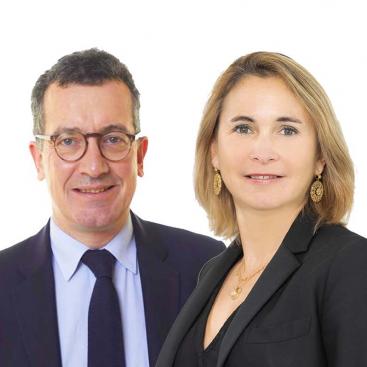Ideas

The world was alerted to climate and environmental issues more than 30 years ago by the IPCC1, and governments took measures to deal with these subjects more than 10 years ago, with the goal of reaching carbon neutrality and thus limiting global warming to 1.5°C2. And yet we are far from this target: the UN published a report in September 2021 stating that the world is on a catastrophic trajectory headed towards 2.7°C of global warming5. It has therefore become a necessity to undertake an industrial and environmental revolution to accelerate the environmental and energy transition. Through green and sustainable bond issuances, investors can contribute to the low-carbon transition while making a twofold impact: financial and environmental. Such is the purpose of the Mirova Global Green Bond3 strategy.

Understanding the markets, Investing, Engaging in dialogues, Measuring Impact... Read the new issue of Mirovα: Creating Sustainable Value

The world and the economy today are facing long-term challenges such as resource security, a need to keep ecosystems healthy, and climate stability. Since there is no Planet B to turn to, it is a matter for all to work for the environmental and energy transition’s acceleration. Finance is no exception and has a role to play to reach carbon neutrality in 2050 and therefore limit temperatures increase to 1.5°C.1 Investments can also contribute to the transition to an economy that gives back to the planet more than it takes out in resources, and helps improving biodiversity. This is the purpose of the Mirova Global Environmental Equity strategy, a theme-based equity strategy aiming to invest in companies which develop robust solutions and cutting-edge services that generate a significant impact on the environmental value chain, in particular in energy and the rapid reduction of greenhouse gas emissions.

Natixis Investment Managers and Mirova invite you to join a journey towards a more sustainable world. Because many opportunities arise from the most profound upheavals, Green Vision invites you to discover how players from different sectors can contribute to the transition towards a more sustainable model and revolutionise the way you think about your investments. Mirova's ESG experts will provide you with the insight to identify the risks and opportunities of these sectors.

Undisputedly, 2021 will have exposed, more than any year previously, the harsh reality of global warming and the environmental challenges that we all face.For the world of finance, this observation confirms that the goal should no longer be to merely finance the environmental transition to a low carbon future: the aim is to accelerate this transition by financing high-impact solutions that help the world act faster and more powerfully.

As sustainable investment is confirmed both as a crucial need and a growing trend, climate and ESG1 corporate disclosures remain on top of regulators and investors’ agenda. The European Union (EU) is currently revising its requirements for corporates sustainability disclosure (Corporate Sustainability Reporting Directive or CSRD). International bodies, the International Financial Reporting Standards (IFRS) and International Organization of Securities Commissions (IOSCO), are aiming for a climate disclosure “building block” to align practices at the global level. In June, the US Securities and Exchanges Commission (SEC) finalized a public consultation on corporate climate disclosures, to which Mirova responded. We share below our views that we have conveyed to the SEC and across various jurisdictions and initiatives (the EU, TCFD2…) in order to build robust, meaningful and useful frameworks for corporate climate and sustainability disclosure.

As sustainable investment is confirmed both as a crucial need and a growing trend, climate and ESG1 corporate disclosures remain on top of regulators and investors’ agenda. The European Union (EU) is currently revising its requirements for corporates sustainability disclosure (Corporate Sustainability Reporting Directive or CSRD). International bodies, the International Financial Reporting Standards (IFRS) and International Organization of Securities Commissions (IOSCO), are aiming for a climate disclosure “building block” to align practices at the global level. In June, the US Securities and Exchange Commission (SEC) finalized a public consultation on corporate climate disclosures, to which Mirova responded. We share below our convictions that we have conveyed to the SEC and across various jurisdictions and initiatives (the EU, TCFD2…) in order to build robust, meaningful and useful frameworks for corporate climate and sustainability disclosure.

The Article 173 of the French Law on energy and transition for Green Growth requires French investors to communicate how environmental, social, and governance issues are considered in their investment choices and processes. Going beyond compliance, the annual publication of our impact report is an opportunity for us to demonstrate why and how we have put sustainable development at the core of our investment policies and engagements. It is an opportunity for us to emphasize the way we create environmental and social value, while simultaneously realizing financial performance. We hope that this report strengthens the understanding and confidence in the quality of our approach as a responsible investor.
